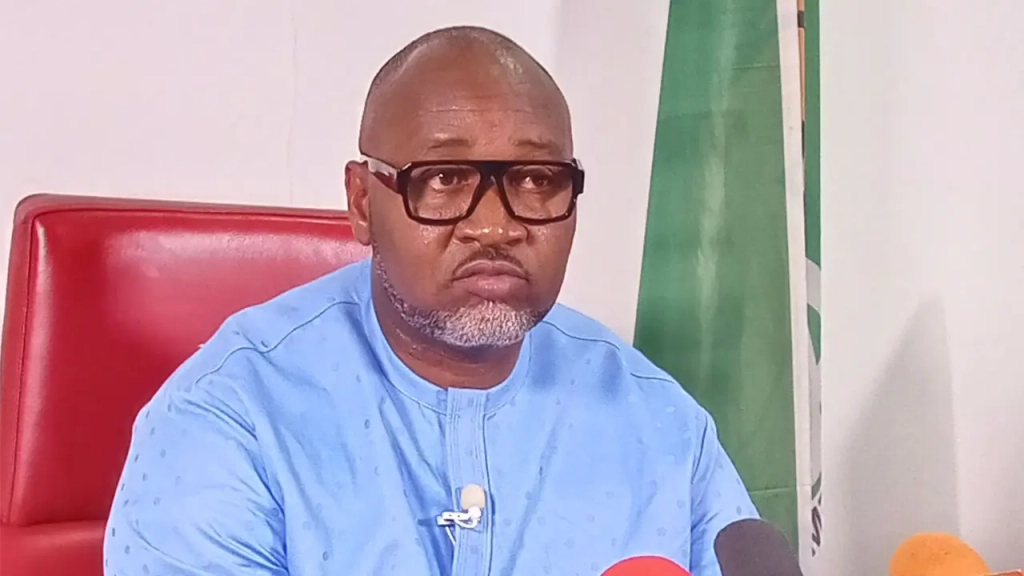Nigerian opposition leader Dumebi Kachikwu has publicly accused former Vice President Atiku Abubakar of orchestrating efforts to seize control of the African Democratic Congress (ADC) for personal political ambitions. The allegations emerged during a fiery press conference in Abuja on Thursday, where Kachikwu, the ADC’s 2023 presidential candidate, declared the party “not for sale” while condemning what he called a “charade” led by established political figures.
Kachikwu alleged that Abubakar, who recently resigned from the Peoples Democratic Party (PDP), had mobilized allies to exploit the ADC’s leadership vacuum amid an unresolved court dispute over its governance. “They are on a rescue mission to rescue themselves from the situation they placed the country in,” Kachikwu stated, drawing a sharp distinction between principled political coalitions and what he termed power-hungry “gangs.” He further accused Abubakar of undermining southern Nigeria’s political representation, claiming the former vice president “doesn’t believe anyone from southern Nigeria should be president.”
The remarks followed Abubakar’s Wednesday departure from the PDP, Nigeria’s main opposition party, after losing the 2023 presidential election to Bola Tinubu. Within 24 hours, Dele Momodu, a prominent Abubakar ally and publisher, defected to the ADC, fueling speculation about coordinated realignments. Kachikwu dismissed these moves as staged theatrics, criticizing tactics like organizing public defection ceremonies as recycled strategies by “old politicians” clinging to power. “Your money will not get you anywhere in the ADC,” he asserted, vowing resistance to external influence.
The ADC has faced internal turmoil in recent months, with Kachikwu noting the party currently lacks a formal leadership structure due to pending litigation. While he did not specify the nature of the court case, the uncertainty appears to have created an opening for factions seeking to reshape the party’s direction. Political analysts suggest Abubakar’s interest in the ADC could stem from its growing appeal among youth and reform-minded voters disillusioned with Nigeria’s dominant parties.
Regional tensions over power distribution have long shaped Nigerian politics, with the presidency traditionally rotating between the north and south. Kachikwu’s accusations tap into these sensitivities, portraying Abubakar—a northern politician who has contested six presidential races—as opposing southern leadership. The ADC candidate vowed to protect the party’s integrity, declaring it neither “for sale” nor “an old people’s home” for veteran politicians seeking new platforms.
Abubakar’s camp has not yet publicly addressed the allegations. The developments highlight escalating rivalries within Nigeria’s opposition as parties reposition ahead of future elections, with newer entities like the ADC becoming battlegrounds for influence between established figures and reform advocates.
